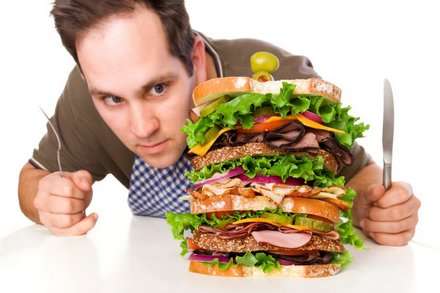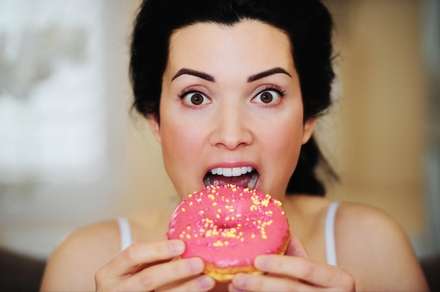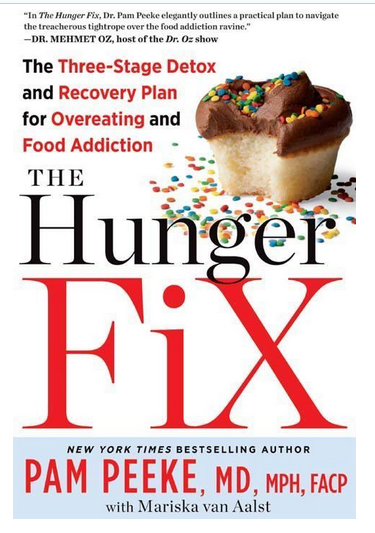Whether it is a bucket of ice-cream to self-medicate after a bad breakup or a jumbo-sized bag of chips to keep you company while studying for an exam, the fact remains the same. Many of us binge on food at times of stress.
An illusion of happiness
However, while stress makes us want that extra slice of pizza, do we also get more joy from consuming it?
To shed some light on this important question, a neat little experiment divided chocolate lovers into two groups.
The members of one group had to dip their hand in ice-cold water; those in the other group held their hand in a lukewarm bath.
Next, the participants were told to squeeze a handgrip in response to a symbol representing a chance to smell chocolate.
Those who had been exposed to the stress of having their hand submerged in chilly water exerted three times as much force on the handgrip.
Curiously, the subjects’ ratings for the enjoyment they got from an actual whiff of chocolate did not differ at all!
Stress increases craving, not enjoyment
As one of the authors of the study, Tobias Brosch (University of Geneva) commented: “Stress seems to flip a switch in our functioning. If a stressed-out person encounters an image or a sound associated with a pleasant object, it may drive him or her to invest an inordinate amount of effort in obtaining it.”
 In other words, stress makes us lose clear perspective on what we are giving up by giving in to the craving.
In other words, stress makes us lose clear perspective on what we are giving up by giving in to the craving.
This is already bad in itself, jeopardizing our efforts to beat addictive behavior.
But the wider implications could be worse still: stress might not only keep the vicious circle running, but it might also rev it up significantly.
After all, logic suggests that as we devour more yet enjoy the same level of satisfaction, we tend to push our consumption levels even higher in the quest for a fuller gratification…

- THE HUNGER FIX: Dr. Pamela Peeke is a leading scientist studying the effects of brain activity on eating disorders. Read more about her findings
While new research is needed to confirm this hypothesis, it could one day explain the established link between heightened stress and weight gain.
What does meditation have to do with dieting?
As studies show, the Transcendental Meditation technique effectively reduces the level of stress hormones in our bodies. The practice is also associated with positive outcomes in fighting different types of addictions.
The causal connection between stress and heightened irrational craving goes a long way in explaining why one benefit leads to the other.
By reducing our stress levels, we protect ourselves against our desires going haywire. Taking up regular TM practice would therefore make resisting that next cupcake or that next cigarette so much easier!
Source:
Pool E, Brosch T, Delplanque S, Sander D. (2014). “Stress Increases Cue-Triggered “Wanting” for Sweet Reward in Humans.” Journal of Experimental Psychology: Animal Learning and Cognition.























